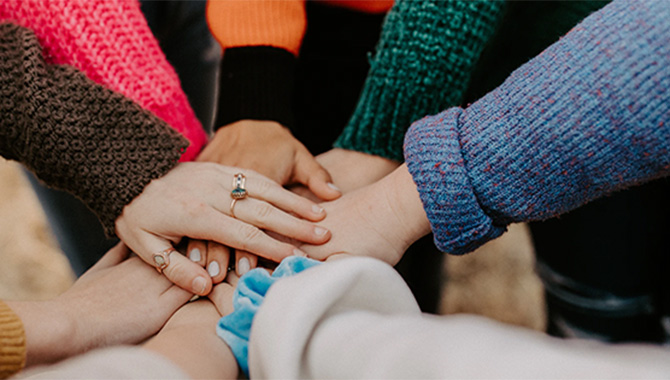January 15, 2021
Finally, all of you, have unity of spirit, sympathy, love for one another, a tender heart, and a humble mind. ~ 1 Peter 3:8
Community is where humility and glory touch. ~ Henri Nouwen
Over a year ago or so I filled up my truck with gas at Cox Conoco. I went in to pay and Lyle Cox said with a grin, “Hey Preacher, do you want to pay for your gas?”
“That’s why I’m here Lyle.”
“About two weeks ago you filled up, started talking, and then you just took off without paying. You owe me for two tanks of gas,” said Lyle.
“Are you sure Lyle?”
“Yeah, I’m sure. I was standing right here when you took off, and I said, ‘the minister just skipped out on a tank of gas!’”
Lyle showed me the receipt, and he was thoroughly enjoying himself.
I was completely embarrassed but saw an advantage. “Well Lyle, can I just have a free tank of gas?”
Lyle laughed, “No, but you can pay your debt.”
“Well thanks for not calling the cops on me, Lyle,” I said as a paid my bill. Even though Lyle Cox and I did not attend the same church or probably hold the same political beliefs, we lived in community. There is something beautiful and endearing within community, something that shows us a way forward.
Community is not an organization but a way of life. A healthy faith community is rooted in gentleness, forgiveness, love of our neighbors and the stranger. When we get community, we “have unity of spirit, sympathy, love for one another, a tender heart, and a humble mind,” (1 Peter 3:8).
Jesus’ intimacy with God found in prayer (solitude) inspired him to redefine the boundaries of family, tribe, and community. That which was divine in him saw that which was divine in other people writes Rohr. He believed all people were beloved children of God and worthy. As the Hindus would say, “The divine in him saluted the divine in the other.”
How do we see other people? Good, bad, indifferent? A faith community is a network of relationships where brotherliness and sisterliness are possible, says Rohr.
The early desert fathers and some mothers went off by themselves into the desert to live holy lives and to find God. They lived quiet lives often miles apart, yet even the monks who lived all alone came together from time to time to celebrate communion and share a common meal. Barbara Taylor writes, “They needed one another, and they knew it. They needed one another to save themselves from the temptation of believing in their own self-sufficiency.”
Do we believe more in ourselves or in the grace of community life? Isn’t it easier to just do it ourselves and not bother with other people or another group?
When I graduated from high school, I left for college a few hundred miles away. I wanted out. Two weeks ago, I found out that the mother of my best friend from middle school had died. I called my friend Parker who I had not talked to in over twenty years. I expressed my grief and then we shared stories from our collective past. We laughed, cried, and said we would keep in touch. “At the very least, most of us need someone to tell our stories to,” says Taylor. We need someone who can help us make sense of our lives, and a community that can hold our stories, affirm us, and not judge us.
Community is not easy, but we are created for one another. Parker Palmer said that community is the “place where the person you least want to live with always lives.” In Jesus’ community was a person who would betray him. “That person is always in our community somewhere,” say Henri Nouwen, and “in the eyes of others, we might be that person.” We learn humility when we live in community.
Mancos, our little church, our book clubs, prayer groups, 12-step programs, and social organizations are beautiful, sacred, and imperfect communities. We skip out on a tank of gas, we say the wrong thing, we greet each other on the street, we stop talking to each other until time breaks the ice, we care for the sick, and we disagree on how to raise our children. We learn to forgive, or we self-destruct. We learn, like Jesus, to see that which is of God in our neighbor.
“Living in community means living in such a way that others can access me and influence my life and that I can get ‘out of myself’ and serve the lives of other,” say Rohr. “Community is a world where brotherliness and sisterliness are possible.”
Community rooted in grace is our way forward.
May we see fellow human beings (children of God) on our daily walks.
May we recognize that we need one another.
May we live humbly in community.
Blessings and peace,
Craig

